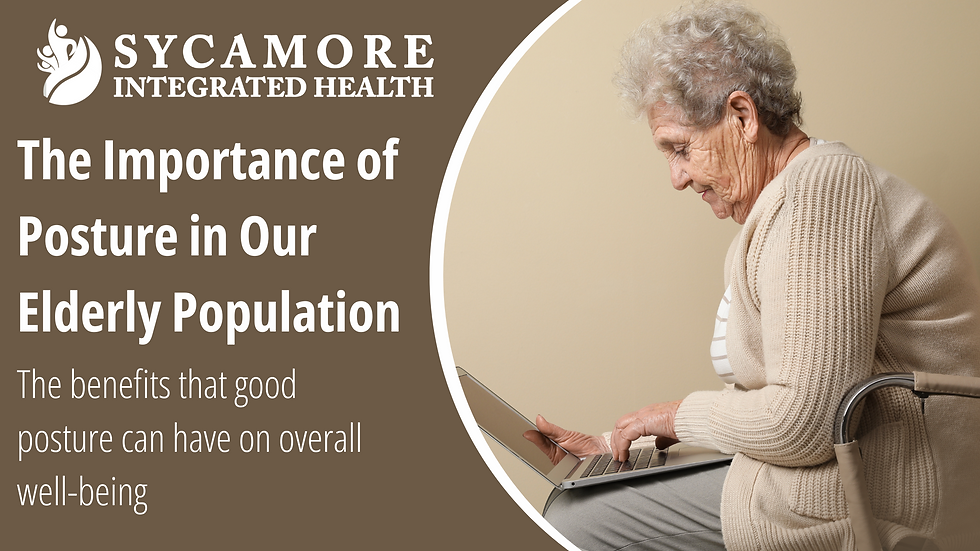How Sleep Impacts Your Body & Health: Part 1
- Sycamore Integrated Health

- Jan 18, 2022
- 3 min read
In this series, we will be discussing the importance of sleep for your well being. Part 1 is covering the basis of how sleep impacts your body & health, while future parts will cover topics such as the effects of neglecting a quality sleep schedule, things that are harming your sleep schedule, and ways you can improve your sleep (in quality and quantity!)

Do you or a loved one suffer from poor sleep, restless nights, or feel tired all the time? Maybe you're looking for a diet free way to lose weight and decrease your risk of things like heart disease, diabetes, and infections? There is a simple, free solution to better health and a happier life that you may be overlooking. Sleep is one of the most important aspects of our health but unfortunately, it is commonly overlooked and not prioritized. Along with a good diet, and regular exercise, sleep is one of the three foundational pillars of health.

In this increasingly stress ridden, “go till the brakes fall off” world we live in, poor sleep is becoming an increasingly bigger problem and unfortunately is often ignored and neglected to try and get ahead. We are now seeing increases in things like insomnia, restless leg syndrome, and obstructive sleep apnea. There is also a negative stigma around getting enough sleep, with those that sleep more often being thought of as lazy. According to the National Health Institute, it is estimated that roughly 70% of Americans are sleep deprived with 35% of adults getting less than 7 hours of sleep per night. This is a HUGE problem! Poor sleep decreases things like memory, cognitive function, and athletic performance, contributes to weight gain, and increases your chances of being in a car or work related accident, not to mention it contributes to increased stress hormone levels and nearly every chronic disease in the book. Your life and safety literally depend on you getting good, quality rest on a consistent basis.
Now, how much sleep should everyone be getting? The answer is, it depends! In general younger kids typically require more sleep and older adults require less but everyone's a little different. Sleep needs can depend on things like health status and physical activity with those who are feeling under the weather and athletes needing a bit more than the average person. Needs can also vary from person to person so try to find the amount of sleep time that feels the best for you.
The CDC guidelines for sleep requirements per night for different age groups are as follows:
Newborns - 3 months → 14-17 hours
4 months - 12 months → 12-16 hours (with naps throughout the day)
1-2 years → 11-14 hours (with naps throughout the day)
3-5 years → 10-13 hours (with naps throughout the day)
6-12 years → 9-12 hours (with naps throughout the day)
13-18 years → 8-10 hours
18-60 years → over 7 hours
61-64 years → 7-9 hours
>65 years→ 7-8 hours
Now I bet you’re probably wondering, “Can I get too much sleep?” The answer is yes! The typical adult should try to not go over around 9 hours of sleep. For many this is not the concern however as the majority of adults are lacking in adequate sleep. However be wary of spending too much time in bed as it can actually increase your inflammation levels and further drive pain and stiffness you may be experiencing.

The bottom line is, your sleep is incredibly important. Being related to so many chronic health conditions your amount and quality of sleep is going to set your body up for either failure or success. This is the first part of a 4 part series about how to and why you should be sleeping more. Tune in next week as we will dive further into poor sleep related conditions and the effects of poor sleep on your body. If you are interested in taking steps toward a healthier, more robust version of yourself and are looking for some assistance, give us a call at Sycamore Integrated Health and get scheduled with one of our providers!





Comments